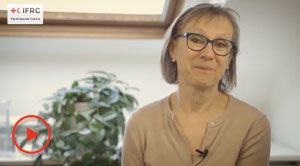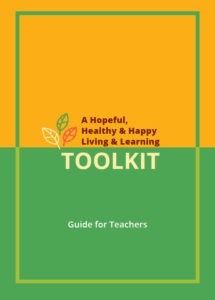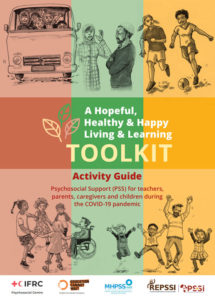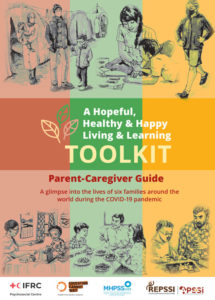A Hopeful, Healthy, and Happy Living and Learning Toolkit’ is a series of tools designed to facilitate support for children, parents/caregivers and teachers affected by the COVID-19 pandemic, but may be useful for anyone, anywhere, and any time.
This toolkit includes the following three resources:
- The Guide for Teachers
- The Parent-Caregiver Guide
- The Activity Guide for Teachers, Parents and Children
PS Centre Technical Advisor Ea Suzanne Akasha, is a co-author of these resources along with Mark Kucklow, a clinical psychologist splitting his time between clinical and counselling work with children and youth and consultancy work focused around child protection and MHPSS, and Jonathan Morgan, a clinical psychologist in public practice.
The toolkit was developed by the PS Centre, REPSSI and APSSI with support from MHPSS.net and funding from Education Cannot Wait.
“Material for teachers is built around several different themes where teachers can pick and choose different exercises that they then can use and integrate in their day-to-day teaching in class. The idea of the outcome is that children learn to manage their feelings, they learn to manage what they have learned during corona, and they learn how to handle challenges so they can have better and more hopeful lives,” says Ea Suzanne Akasha, PS Centre Technical Advisor.
On 30th June, the authors of the three resources in the toolkit, Ea Suzanne Akasha, Mark Kucklow and Jonathan Morgan ‘unboxed’ the toolkit and introduced the elements of the toolkit resources and how they might be used in practice, while participants had an opportunity to discuss the tools with the authors and each other.
In this episode of the Heartbeat of Humanity podcast, Sarah Harrison, Technical Advisor for the PS Centre, interviews the authors who explain the relevance, importance, and need for the toolkit as well as how it can be used by teachers, caregivers and children.
About the Tools:
Guide for Teachers
This Guide has been designed for teachers supporting children in their return to school in the wake of the pandemic. It opens with a set of general group-building exercises, followed by themed activities focussing on 16 key life skills supporting the personal, cognitive and interpersonal development of children. The exercises are suitable for a wide range of different age groups from pre-school to secondary school. The exercises could also be combined with sports and leisure activities in clubs or community centres, and in safe spaces for children in humanitarian settings.
Activity Guide:
This Guide for Teachers, Parents and Children features fun activities for children at home, in school or for remote use. In a home learning environment, for example, the activities could be done with a sibling group. Each activity is flagged as best done with a group or whether it may be adapted for use with a single child. The activities have been carefully designed to engage with children in relation to social and emotional learning around self-awareness, self-management, social awareness, relationship skills and decision-making
Parent-Caregiver Guide:
This booklet has been developed for parents and caregivers and is designed to provide guidance and inspiration around psychosocial wellbeing in the household in the face of challenges presented by the COVID-19 pandemic. It features six fictional families from different corners of the world who are facing challenges in their lives in the course of dealing with COVID-19. Positive messages to encourage parents and caregivers in the care of their children at this demanding time are given such as structuring the day, taking time to check in with one another, using positive discipline, talking about loss, dealing with stigma, and protecting children online. At the end of the guide, there is a useful checklist for the whole household to help everyone reflect on how they are doing as a family. There is also a set of prompts for families who wish to make a COVID-19 hero book.




